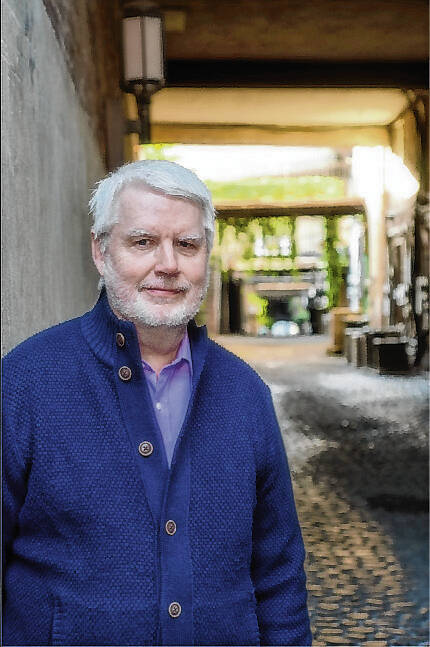My family has been a fan of Mark Knopfler’s music since Dire Straits first appeared on the scene. When our boys were very young, the one song they most wanted to hear and sing along with was “Money for Nothing.”
Only recently have I stumbled upon another of Knopfler’s songs, “All the Roadrunning,” that speaks to my generation as much as “Money for Nothing” spoke to the MTV generation. “All the Roadrunning” is a heart-wrenching ballad that Knopfler sang with Emmylou Harris, a song that honors the lives of older touring musicians, but also poses the question “Was it all worth it?”
The song reminds me of a comment by the Trappist monk Thomas Merton, who wrote that a monk wouldn’t know if he’d wasted his life until the end of it. I think Merton would have liked Knopfler’s “All the Roadrunning,” as Merton appreciated the music of Bob Dylan, another musician who has spent his life writing songs, recording, and touring.
The chorus of Knopfler’s “All the Roadrunning” is particularly poignant: “But if it’s all for nothing/ all the roadrunning has been in vain.”
Did what I devote my life to, in the end, have any lasting value? I believe that question confronts most people of my generation as they look back and take stock of their lives. The psychologist Erik Erikson suggested that this question is the central one for older people. Erikson’s final stage of human psychosocial development contrasts two responses of older people when they look back on their lives: integrity and despair. Happy and peaceful is the person who looks back on her life and feels grateful. Unhappy or despairing is the person who looks back on his life with a mountain of regrets.
I don’t think Erikson meant acceptance of one’s life and despair as two mutually-exclusive responses. Rather, acceptance and despair are the two ends of a spectrum. Over our lifetimes, we will experience both acceptance and despair. The question is, which response will dominate in our later years?
Being raised in a religious family, I heard the phrase repeated many times: “Only one life will soon be past; only what’s done for Christ will last.” To this obviously Christian version, we could add, “Only one life will soon be past; only what’s done for God will last,” but also, “Only one life will soon be past; only what’s done for others will last.”
To borrow Knopfler’s term, “roadrunning” is a fair description of all our lives. Each of us is on a journey, travelling along a figurative road, living out a story that has never been lived before. The tension on this journey is between getting and giving. Most of what we “get” in life — what we achieve for ourselves — will be forgotten in a generation or two after our earthly journey is completed. It is only what we “give” to life, to others, and, for many of us, to God, that will endure.
So how should I end this reflection? If these thoughts resonate with you, I invite you to listen to “All the Readrunning,” which you can find online.
Thank you to Mark Knopfler and Emmylou Harris for singing “All the Roadrunning.” I have no idea how much money and fame you both “got” from recording this song, but I do know you “gave” us a lot to think about.
David Carlson of Franklin is a professor emeritus of philosophy and religion. Send comments to [email protected].





